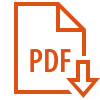Essential requirements for getting a mortgage - TAB U Podcast - S2 E3 - #TABUniversity
This season we’ll be talking to the experts both at TAB and our special guests to cover all topics ranging from investing in property to lending, and finance.
In this episode, TAB U host Katrina Hindley is joined by Harry Dugg a business development manager at TAB and Magnus Duke Dudzie, executive director and specialist finance broker at The Finance Company. They’ve joined us to provide an insight on all things to do with mortgages, from how much mortgage costs, to the different types of mortgages you can get.
The top five questions to be discussed in today’s episode are:
- Question 1 - What is a mortgage broker?
- Question 2 - What are the types of mortgages you can get?
- Question 3 - What are the types of mortgage is best for first-time buyers?
- Question 4 - What information do I need to supply when applying for a mortgage?
- Question 5 - How much does it cost to get a mortgage?
What is a mortgage broker?
Put it simply, a mortgage broker is a representative of anyone looking for property finance. The broker works in between the buyer (of the property) and the lender (of the loan) to find the best possible financial package for the buyers.
What should I be looking out for when choosing a mortgage broker?
When looking at a mortgage broker, the first thing to do would be to research the company they work for. Are they registered with the Financial Conduct Authority? You may be able to find reviews on the company or their brokers to better understand how they’ve dealt with clients in the past. Is there customer care in line with what you're looking for? You can start building a picture based on the reviews.
Can I not negotiate with the bank myself? Why do I need a mortgage broker?
There are several benefits to using a mortgage broker. The first and most obvious is money savings. A mortgage broker has full access to the market and will conduct an extensive amount of research to find you the best mortgage options to choose from that best suit your specifications. A broker’s focus is not only on saving you money and minimising your fees, they want to ensure that the type of mortgages they’re recommending for you suits your long term goals.
With mainstreaming lending institutes such as banks, there are often incredibly rigid and strict lending criteria around who can or cannot get a loan. If you are rejected for a mortgage, a broker will help you understand why you’ve been rejected, for example, if you have a poor credit score, they can provide suggestions and help you to improve your score so that you can secure a mortgage when applying.
What are the types of mortgages you can get?
Fixed rate mortgages
The most common option is a fixed-rate mortgage. A fixed-rate mortgage is a type of loan where the interest rate remains the same throughout the fixed term of the loan. If you are looking to move home however or want to pay a higher percentage of your mortgage back earlier, you'll incur an early repayment charge (ERC). By law, the ERC amount is always disclosed and made clear from the beginning. AN ERC is often presented as a percentage and can vary based on the lender.
Tracker mortgages
A tracker mortgage tracks the base rate of the Bank of England (BoE), and provides mortgage amounts based on these figures. A lender may often put a percentage on top of the base rate when deciding their interest rates. For example, if the Bank of England base rate is at 1%, the lender can put an extra 2% on top to equal their interest rates at 3%. The advantage of a tracker mortgage is when the base interest rate set by the BoE goes down, then so will the mortgage's interest rates, however the same is also true when the base interest rate increases.
Discounted rate mortgages
Rather than look at the base rate set by the BoE, a discounted rate mortgage uses the lender’s own standard internal rate, which is used to determine the loan interest rate. Discounted rate mortgages can be beneficial when the lender provides an interest rate lower than the bank of England, but similarly to tracker rates, can also be more expensive in certain circumstances.
What type of mortgage is best for the first time buyer?
Deciding what type of mortgage is best is usually based on the specific person and can depend on savings, income and other circumstances. Often the best option for first-time buyers is choosing a fixed-rate mortgage as it provides you consistency on your interest rates that aren't dependent on a lender’s internal rates or set rates from the bank of England, both can be volatile. Fixed-rate mortgages provide clarity and are better suited to those who are risk-averse, something that could be necessary for those with small amounts of capital such as young people or first-time buyers.
The amount of time it can take you to get a mortgage is also another factor that varies based on the lender and their workflow, of course, the time taken to identify the property you want also needs to be factored in and can be time consuming also. Often the process from finding a property to moving in can take around eight to twelve weeks. There are however multiple factors that can delay that process, if you encounter issues with land registration for example, the moving in period can increase up to six months.
How do joint mortgages work?
Of course, the main benefit of a joint mortgage is that you have joint savings to go towards your deposit and the lender will look at your joint income when assessing your credibility. This means you have more capital at your disposal to go towards deposit payments and mortgage payments. However joint mortgages do have drawbacks.
Generally, the lender’s credit criteria will still be taken into account for both borrowers. It’s important to have an understanding of your partners’ credit score to understand how their credit score may impact your mortgage application. Although a credit score is hugely important, other aspects of one individual's history can affect the mortgage application, such as previous loans they’ve taken out and criminal record will also be important factors.
What information do I need to supply when applying for a mortgage?
Most mortgage brokers would ask you to provide your last three months' bank statements, your last three months' payslips and your credit report. That provides the broker full transparency of your financial situation. There are multiple resources you can use to check your credit reports such as Equifax, Experian and CheckMyFile.
What is a credit score?
A credit score is a numerical value provided after factoring in all the financial moves you’ve made. It provides the lender with a reference of how reliable and trustworthy you are when assessing your loan application. Missing payments, taking out a credit card spending lifestyle will all be noted on a credit report and contribute to your credit score. Although they will almost always play a big role, some lenders, however, may overlook a poor credit score depending on your set of circumstances, these are normally specialised lenders that can be identified by mortgage brokers.
How much does it cost to get a mortgage?
On top of the existing cost of the loan, the main four costs that you’ll encounter are legal fees, valuation, mortgage broker fees and stamp duty. As with most things to do with mortgages, the value of a mortgage will vary spending on the lender. Some lenders may cover the cost of your valuation or legal fees however this is not a given and can heavily impact the total financial package. Once factored in these four costs and the loan cost, you can start understanding what the total costs of your financial package will look like.
This podcast is for information only and does not constitute advice or a personal recommendation. When it comes to financing, any property used as security is at risk of repossession if you do not keep up with your payments. If you are unsure of the risks, you are advised to obtain appropriate professional advice.





































